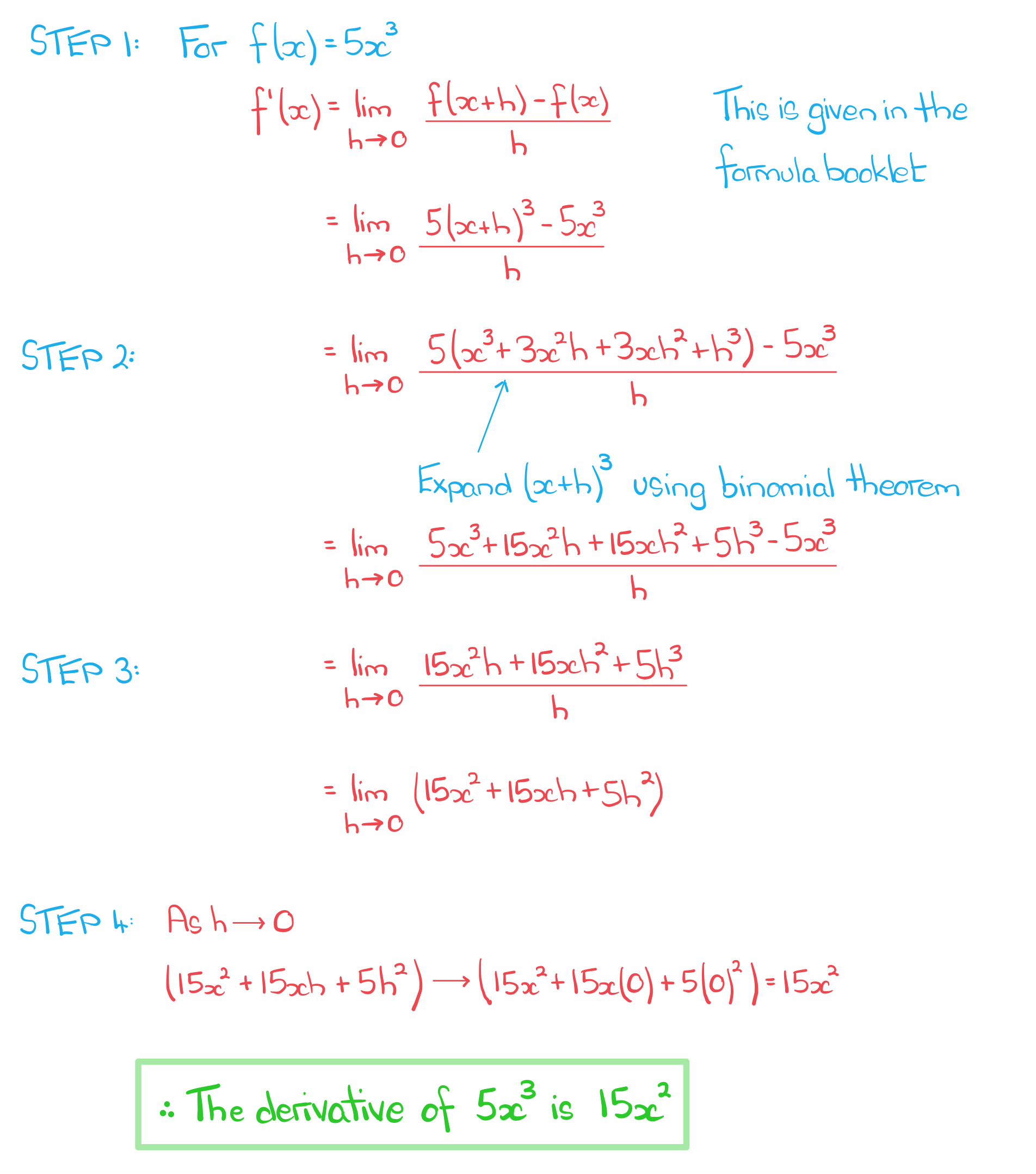First Principles Differentiation (DP IB Analysis & Approaches (AA)): Revision Note
Did this video help you?
First principles differentiation
What is differentiation from first principles?
Differentiation from first principles uses the definition of the derivative of a function f(x)
The definition is
means the 'limit as h tends to zero'
When
,
which is undefined
Instead we consider what happens as h gets closer and closer to zero
Differentiation from first principles means using that definition to show what the derivative of a function is
Examiner Tips and Tricks
The first principles definition (formula) is in the exam formula booklet.
How do I differentiate from first principles?
STEP 1
Identify the function f(x) and substitute this into the first principles formulaE.g. Show, from first principles, that the derivative of 3x2 is 6x
so
STEP 2
Expand f(x+h) in the numerator
STEP 3
Simplify the numerator, factorise and cancel h with the denominator
STEP 4
Evaluate the remaining expression as h tends to zero
The derivative of
is
Examiner Tips and Tricks
Most of the time you will not use first principles to find the derivative of a function (there are much quicker ways!). However, you can be asked on the exam to demonstrate differentiation from first principles.
To get full marks, make sure you are are writing right up until the concluding sentence!
Worked Example
Prove, from first principles, that the derivative of is
.


Unlock more, it's free!
Did this page help you?